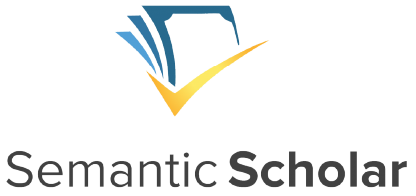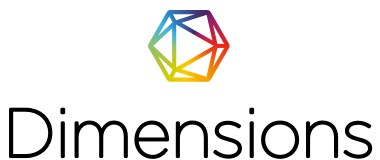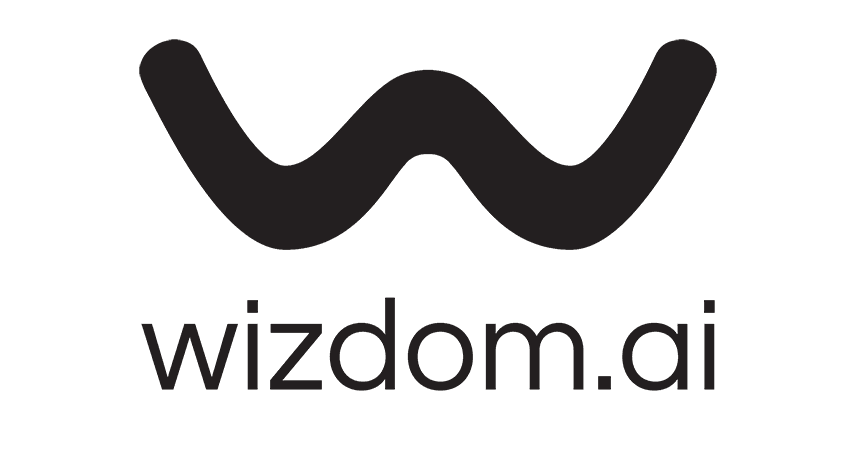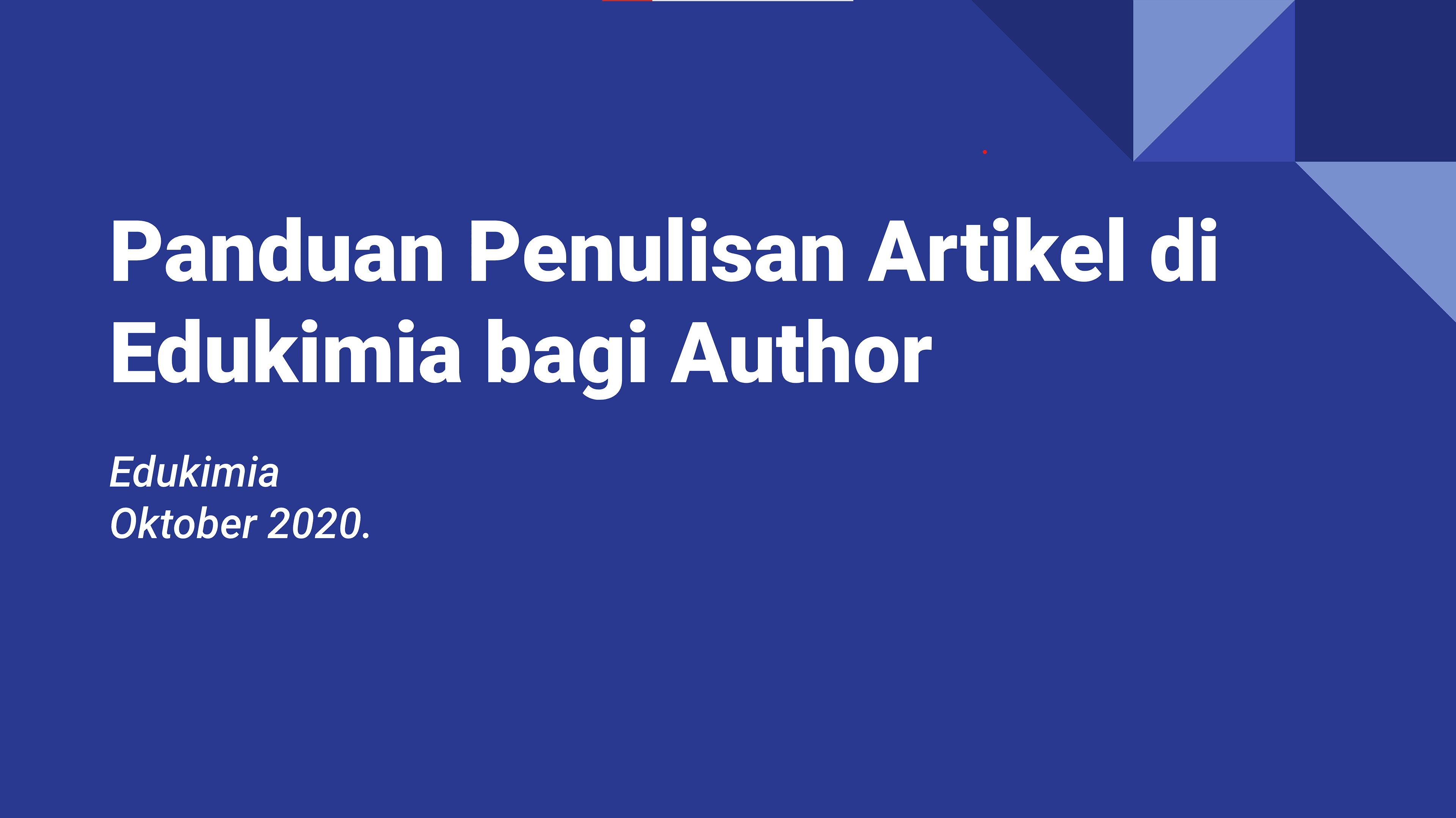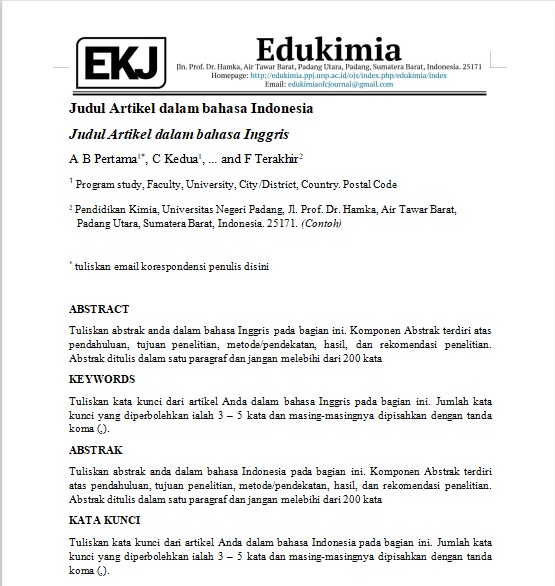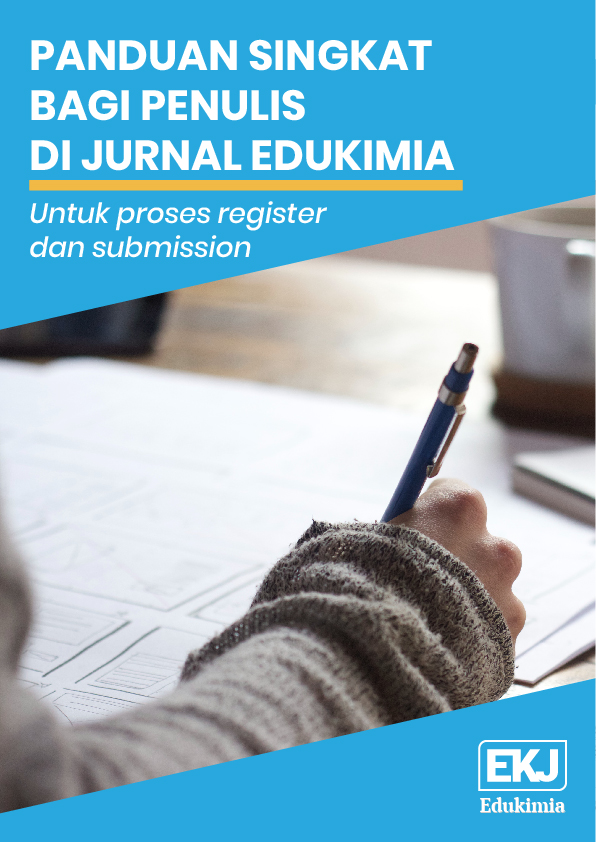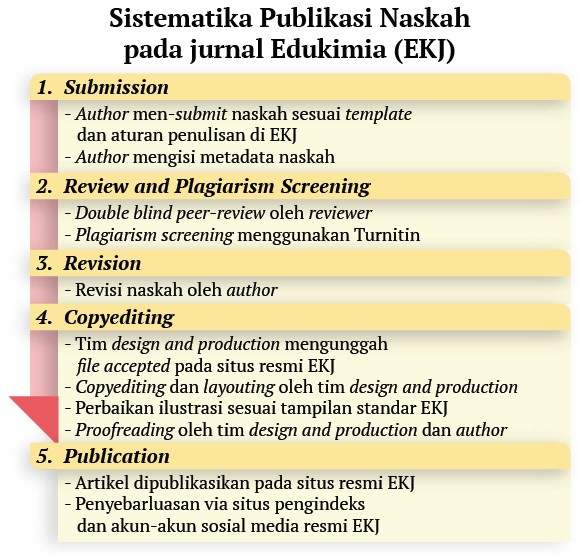Focus and Scope
Edukimia is an academic journal that published all the studies in the chemistry education areas which related to education, learning, teaching, curriculum development, teacher education, educational technology, educational developments from various types of research such as surveys, research & development, experimental research, classroom action research, etc. The journal covers all the educational research at the level of primary, secondary, and higher education.
The goal of this journal is to bring together researchers and practitioners from academia and industry to focus on educational advancements and establishing new collaborations in these areas. Original research papers, state-of-the-art reviews are invited for publication in all areas of Education as long as it's related with chemistry education.
Topics of Interest include, but are not limited to, the following
- Ethnopedagogy-based STEM Education
- Collaborative and Interactive Learning
- Tools for 21st Century learning
- Pedagogy Enhancement with E-Learning
- Web-based tools for education
- Games and simulations in Education
- Professional Development for teachers in ICT
- Technology Support for Pervasive Learning
- Interaction in Education
- Mobile or ubiquitous computing in education
- Learning or Teaching Methodologies and Assessment
- Global Issues in Education and Research
- Educating the educators
- Teacher Evaluation
- Curriculum
- Lesson Study
- Chemical Literacy
It's worth to note that all of mentioned topics above were related with chemistry education. If the manuscript doesn't related with the chemistry, than the manuscript will be automatically declined from the beginning.
Section Policies
Curriculum, Learning or Teaching Models, and Article Review
which include:
- Global Issues in Education and Research
- Educating the educators
- Curriculum
- Lesson Study
- Chemical Literacy
Assessment and Learning Evaluation
which include:
- Learning or Teaching Methodologies and Assessment
- Teacher Evaluation
Media and Technology in Education
which include:
- Ethnopedagogy-based STEM Education
- Collaborative and Interactive Learning
- Tools for 21st Century learning
- Pedagogy Enhancement with E-Learning
- Web-based tools for education
- Games and simulations in Education
- Professional Development for teachers in ICT
- Technology Support for Pervasive Learning
- Interaction in Education
- Mobile or ubiquitous computing in education
Articles
Editors- Faizah Qurrata Aini, S.Pd., M.Pd
- Margarita Claudya Maida, S.Pd., M.Si., Ph.D
- Ifan Rivaldo, S.Pd., M.Pd
- Prof. Dr. Yerimadesi S.Pd., M.Si
- Bambang Sumintono, Ph.D
Editorial Information
Editors- Fitri Amelia, Ph.D

.jpg)


